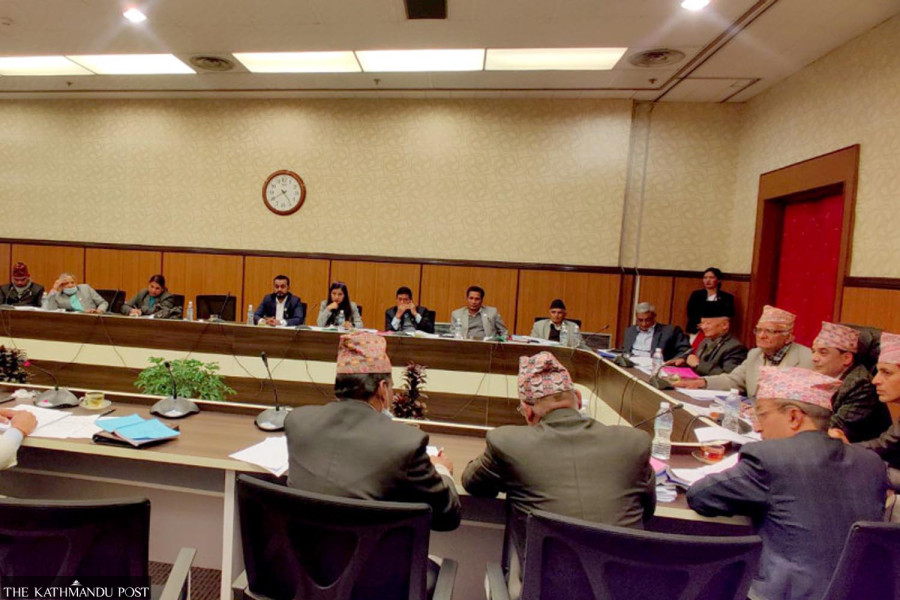National
Parties agree to suspend MPs sent to judicial custody
The proposed regulations will come into effect once endorsed by the House of Representatives.
Binod Ghimire
After several rounds of discussions, the regulation drafting committee of the House of Representatives, on Thursday, endorsed the House’s regulation that provisions suspending a lawmaker who faces judicial custody or is absconding in a criminal offence.
The majority of committee members agreed to a lawmaker’s suspension if any law court sent him/her to judicial custody. Last week, they were not in favour of suspending lawmakers until they were convicted. The decision, however, met with widespread criticism, compelling lawmakers to agree to the provision of suspension in case of judicial custody.
“Some lawmakers wanted the suspension to be applicable after a lawmaker is arrested by police following the registration of a complaint. However, majority members favoured suspending the accused only after they are sent to judicial custody by a court,” Chitra Bahadur KC, who is chairing the drafting committee as its eldest member, told the Post. “The provision for the suspension will not be applicable when quasi-judicial bodies send lawmakers to judicial custody.”
Earlier, lawmakers from the Nepali Congress, the CPN (Maoist Centre), and the CPN (Unified Socialist) were votaries for suspending lawmakers immediately after their arrest. The CPN-UML, the Rastriya Prajatantra Party, the Janata Samajbadi Party, and other Madhesh-based parties, however, opposed suspending lawmakers until they were convicted by the court. However, treading the middle path, lawmakers across parties agreed to include a provision for suspension once a member of the lower house is sent to judicial custody.
In 2018, it took months for the regulation drafting committee to finalise the regulation of the lower house following sharp differences among parties over whether or not to suspend lawmakers accused of crimes. However, they reached an agreement not to suspend such lawmakers but just to strip them of their perks and privileges as lower house members, so long as they are not convicted by the court.
“The draft regulation will be tabled in the House on Wednesday and will come into effect once it gets endorsed,” KC told the Post.
On Thursday, the parties agreed to have a provision allowing the new House of Representatives to take on the impeachment motion, if the House expires without concluding the motion.
The drafting committee has also agreed to conclude impeachment motions against the President and Vice-president in three months, and within five months if the motions are against the chief justice, justices, members of the Judicial Council and constitutional commissions.
Shobita Gautam, a member of the committee from the Rastriya Swatantra Party, said that an impeachment motion registered in the House when there is less than five months of its tenure left, and which cannot be put to vote by the time of the tenure’s expiry, will remain as a property of the House. “It will be up to the new House whether or not to own up the impeachment motion from the previous lower house,” Gautam told the Post.
The provision, however, will not apply to the impeachment motion against former chief justice Cholendra Shumsher Rana. On February 13 last year, the then ruling party lawmakers had brought the motion against Rana in the lower house. However, the term of the House expired, without concluding the motion. Issuing a letter, Bharat Raj Gautam, general secretary of the parliament secretariat, said the motion had become invalid after the election of the new House.
The draft regulation endorsed by the drafting committee also allows the Deputy Speaker to commence and end the House meeting with the consent of the Speaker, or on their own in an emergency situation. “We also have agreed to have 10 thematic committees in the House of Representatives,” said Gautam, the committee member.




 10.12°C Kathmandu
10.12°C Kathmandu















